Imaginative, hilarious, and thought-provoking, “Discontinued” is a must-see for anyone struggling to make sense of an insane world.
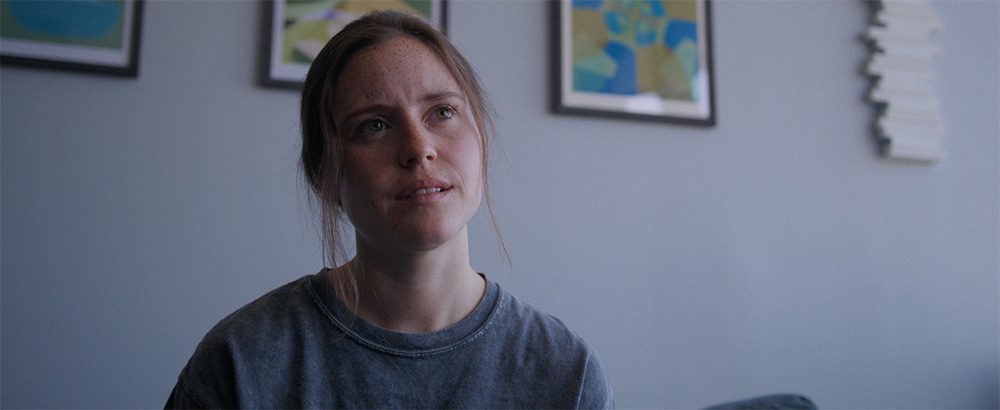
A young woman, Sarah (Ashley Hutchinson), is doing her best to make it through each day as she struggles with depression, anxiety, and general ennui about the state of the world and her place within it.
The film begins with her meditating alone, to the sound of a calming voice on a tape, by a serene lake — a breathtaking backdrop to her existential crisis. We then find her listening to the same tape in her car before begrudgingly exiting the car and heading to her soul-sucking job as a door-to-door solar panel salesperson. After having been laid off from her dream job, she now finds herself adrift in meaningless existence and mere survival rather than actually living.
It all sounds very bleak, and it is, but it’s played with great humor and a sense of playfulness.
Sarah may be spiraling. But she’s incredibly charming and likable with a dry, caustic wit that makes her relatable and endearing, even as she’s sarcastically chastising her therapist for telling her not to worry as the world burns and social media slowly turns everyone into monsters.
Her therapist, Theodore (Robert Picardo), struggles to connect with the depressed millennial, but two years of weekly therapy hasn’t amounted to much of anything. He repeatedly asks Sarah to stop dwelling on what she can’t change. But she mocks that idea for the naïve belief that things get any better if you just stop thinking about them.
Sarah’s exchanges with her therapist are often funny and entertaining, but there remains an underlying hint of great sadness and pathos. She wonders what the point of trying is when the world feels doomed.
And then she hits him with a potent emotional punch when she tells him she’s more afraid of surviving an apocalypse than dying in one.
And this casually devastating comment sets up the crux of the film.
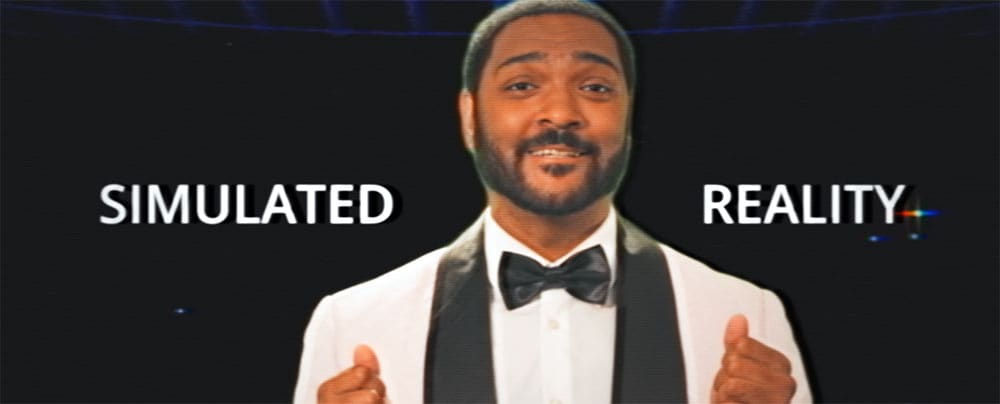
What if you could choose between soldiering on when everything and everyone you’ve ever known ceases to be or quietly and peacefully jumping ship before the whole thing sinks?
Soon, Sarah, along with the entire rest of the world, is given just that choice.
Following the trainwreck of a blind date with the spokesman for toxic masculinity, Tucker (Michael Bonini), Sarah sits at home alone watching television.
Suddenly, a man is talking about simulated reality. He explains that everyone living on Earth right now is really just part of a simulation by an advanced race of the future, looking back in an effort to see all the possible alternate histories based on changing variables. “Your entire world,” he explains, “is just one of the billions of simulated realities.”
The host goes on to explain that the simulation will be discontinued in precisely one week.
All sentient inhabitants of the simulation must legally be made aware of the upcoming termination so that they can choose one of two options: remain in the unmanned simulation or allow their consciousness to be transferred into a less complicated reality where they can live out their five greatest memories for eternity, free from any higher awareness.
At first, she thinks it’s a silly hoax, but it soon becomes clear it’s all frighteningly real.
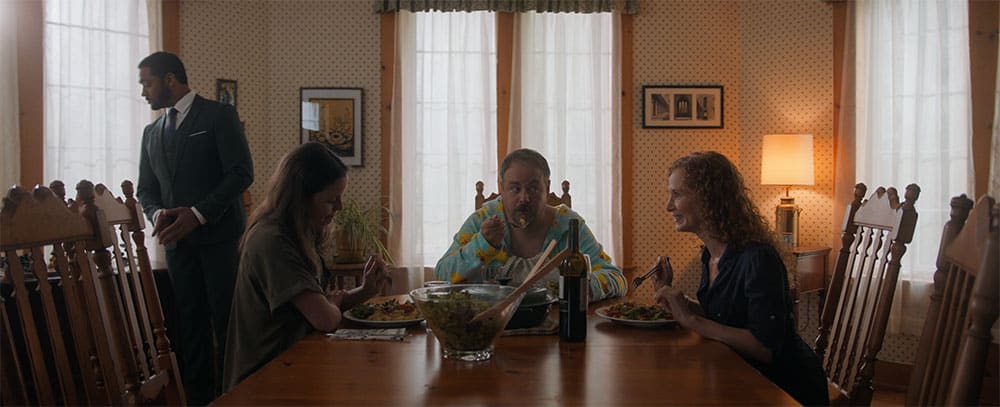
The host explains that a guide will be assigned to each person whose sole purpose is to help them finalize their choice and transition to the next phase as peacefully as possible. Immediately after saying this, the program shuts off, and Sarah hears a knock at the door.
A man appears and introduces himself as The Guide (played by Lawrence Fishburne’s son, Langston Fishburne). He looks exactly like the man on the television, which he explains is to make the experience easier to process. But he’s really just an advanced AI whose personality has been tailored to Sarah specifically.
Once the reality of what is happening entirely sets in, the people of the world try to cope in the various ways you might expect: embracing spirituality and worshipping the advanced race as gods, indulging in hedonistic and destructive behaviors, quitting jobs and taking that bucket list trip, and planning “end of the world” parties.
For most people, including Sarah’s therapist and her odd but loving parents, the news is pretty overwhelming and annihilating.
For Sarah, however, a strange sense of calm washes over her.
For the first time in a long time, she feels in control — precisely because she realizes she is not in control and never was. The knowledge that the world is being controlled by a greater intelligence relieves her of all guilt and anxiety.
In an obvious allegory to religion, she finds peace in the idea that everything that has happened to her has been in the hands of a higher power, and nothing is a disaster of her own making.
While just about everyone she knows seems to be making the clear and easy choice to exit the harsh reality of their world and enjoy mindless bliss, Sarah is one of the few who feels optimistic about the unknown future. She believes she’ll be happier, more unrestrained, and more herself when all the people disappear.
But an unexpected exchange with The Guide shakes her foundation to the core when she makes the mistake of asking him why their simulation is being terminated.
From here, this very funny film becomes something much more substantial and surprisingly moving.
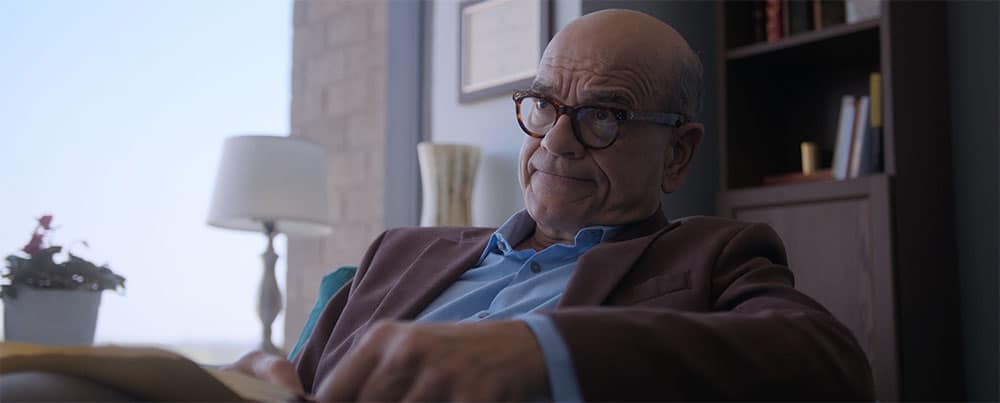
I don’t want to ruin anything, but the film explores ideas about mental health, free will versus agency, belief, the importance of human connection, fear of the future, man’s impact on the planet, self-actualization, and the meaning — or meaninglessness — of existence.
Heady stuff, yet it never feels maudlin or excessively weighty.
As writer-director Trevor Peckham states, “This film (based on a story by Peckham and Michael Villucci) is basically an hour and a half of questions that could spark debate. What is real? What’s the meaning of it all? Does it even matter?”
In spite of the subject matter, Peckham masterfully maintains the balance between having something to say and keeping the audience wildly entertained, even during moments of particular pathos.
There are clear parallels to Covid and how such an isolation-necessitating pandemic affected extroverts versus introverts.
Hutchinson is extraordinary and effortlessly carries most of the film’s weight on her capable shoulders. She plays Sarah as such a complex, emotional, but walled-off character. She’s neurotic without being narcissistic, misanthropic without being obnoxious, and melancholy without being deeply unpleasant.
She’s deeply relatable, especially to anyone who has ever felt lost, hopeless, or suffered an identity crisis.
Hutchinson’s chemistry with Fishburne is the absolute heart and soul of the film.
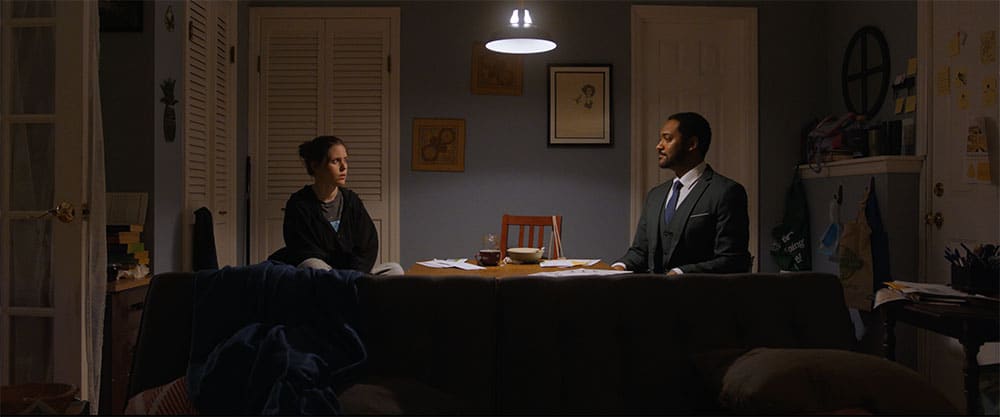
He’s tremendous as the nurturing, supportive, compassionate voice of comfort in a raging storm.
The irony is definitely not lost that Sarah’s closest and most genuine relationship with humanity and the power of human connection comes via artificial intelligence.
The ending of Discontinued is surprising, emotional, and remarkably beautiful. It left me reeling in the best possible way. This is a film that really lingers after it’s over.
I never knew where the film was headed until it arrived at its pitch-perfect destination, and it’s a journey I am thrilled to have taken.
If we really are all on the brink of extinction, don’t leave this mortal coil without experiencing the magic of Discontinued.
Discontinued releases on VOD on Apple, Amazon, Google Play, Xbox, and Vudu in the following regions on 5/2: US, Canada, UK, Ireland, Australia, NZ, and South Africa. Pre-order live on Apple TV+ now!


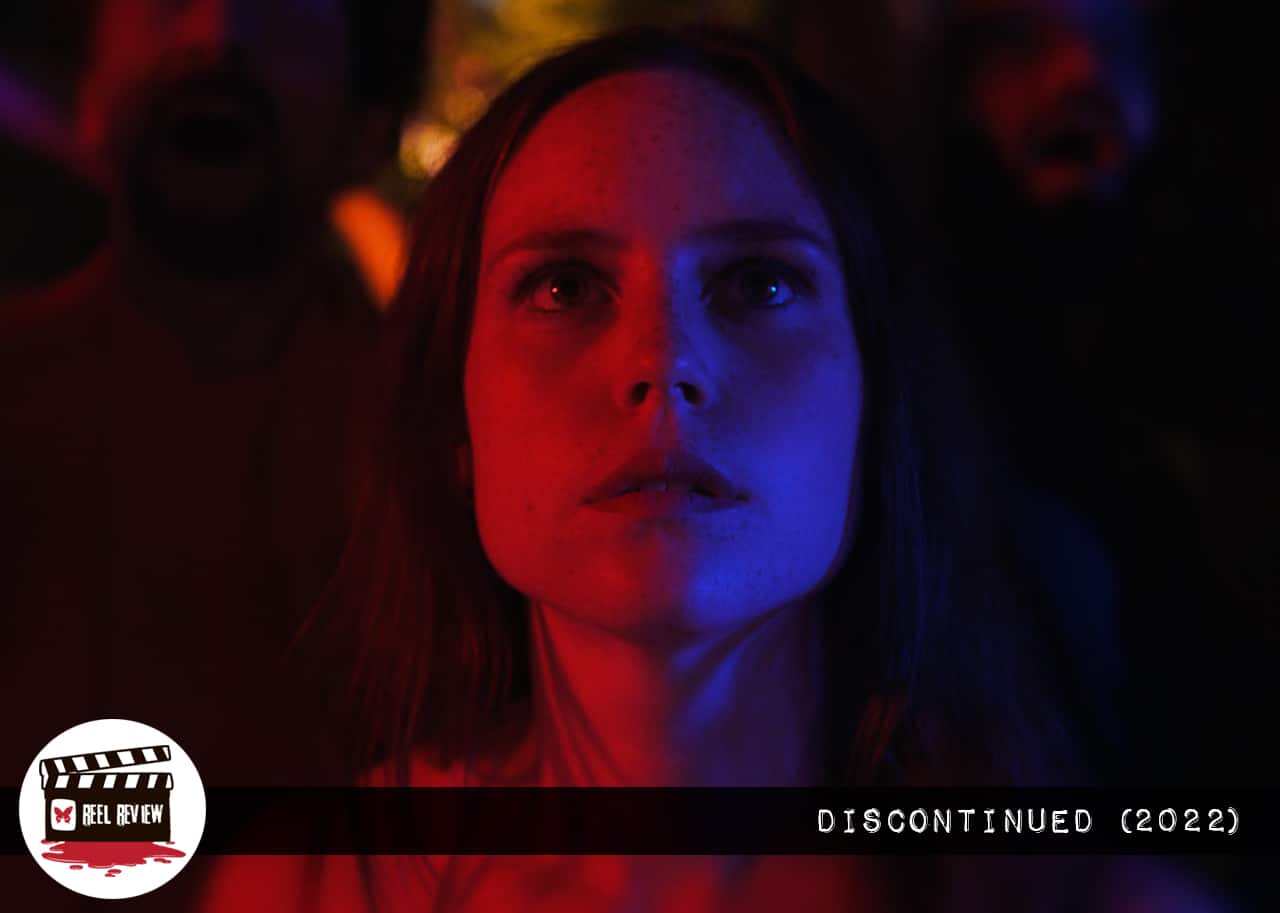












Follow Us!